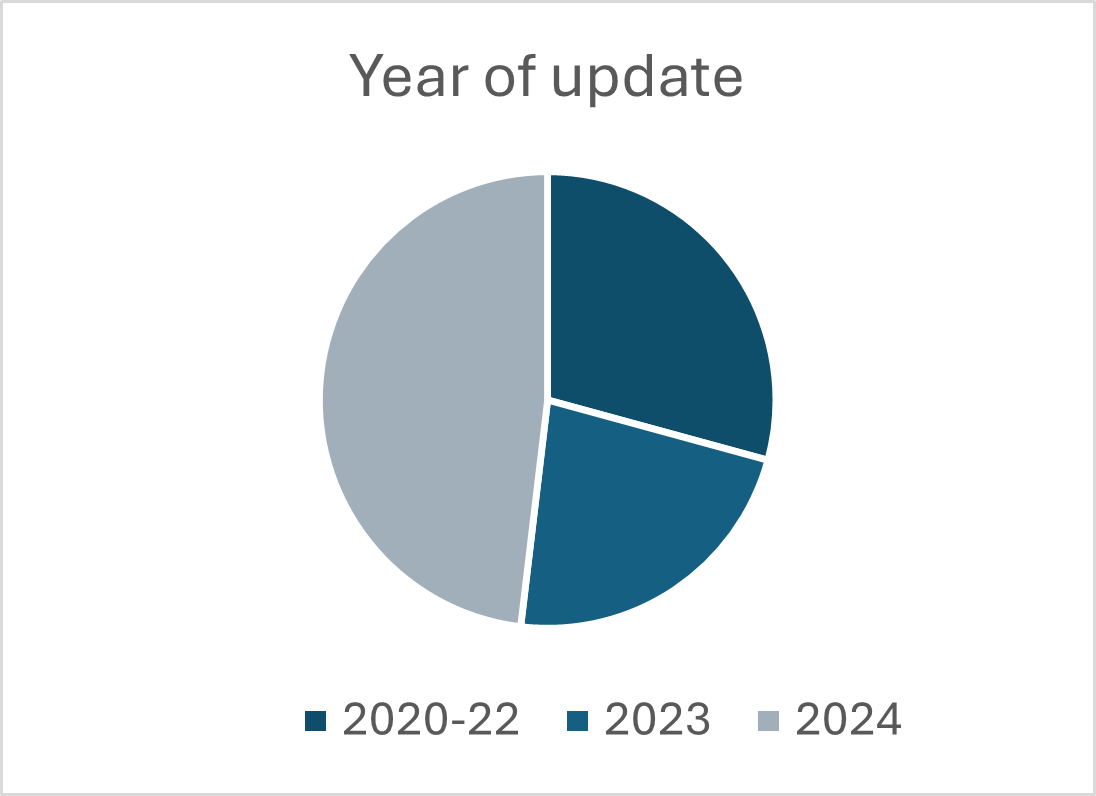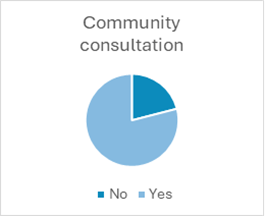Why undertake an audit?
Section 69 of the Local Government Act 2020 (the Act) requires all councils to prepare Governance Rules that include an Election Period Policy.
The Election Period Policy must prohibit:
- Any council decision during the Election Period that relates to:
- The appointment or remuneration of a CEO (but not an Acting CEO)
- Commits the council to expenditure exceeding 1% of its income from rates, fees and charges for the previous financial year
- Matters that council could reasonably be deferred until after the election
- Decisions that the council believes should not be made during the Election Period
- A decision that would enable the use of council resources in a way that is intended, or likely, to influence voting.
It should be noted that any decision that relates to CEO appointments/remuneration or expenditure exceeding 1% of rates, fees and charges is invalid. Further, any party suffering loss or damage from an invalid council decision may make a claim for council compensation.
Section 304 also identifies that should an incumbent councillor or council officer use council resources for election purposes, it is an offence that could see a penalty of up to sixty penalty units ($11,885.40). This is why it is important for an Election Period Policy to clearly set out restrictions and procedures for ensuring council resources are used appropriately.
In early August, the Chief Municipal Inspector wrote to all CEOs requesting a response to several questions around updates to the Election Period Policy. Moira Shire was excluded given it is currently under Administration.
Responses were received from seventy-one of the seventy-eight councils where elections were to be held.
Councils that failed to respond included two small rural councils, three large rural councils and a metropolitan council. Despite not responding, the LGI audited their Election Period Policy from information available from their website, noting that not all of the information we sought could be located.
Had council updated its original Election Period Policy developed in 2020?
The majority of councils updated their Election Period Policy in 2024, many of which amended their policy to reflect the legislative change in June 2024 extending the Election Period by one week.
Three councils appeared not to have updated their policy since 2020; one metropolitan, one large rural and one small rural, despite having updated other aspects of their Governance Rules since 2020.
Ease of access to the Election Period Policy on council websites
Many councils saved the Election Period Policy component of their Governance Rules into a separate document that was then posted on their dedicated election page for ease of access. The policy was therefore easy to locate using the website’s search function.
Others, however, were not easy to locate and members of the community would need to know that the Election Period Policy formed part of the Governance Rules to find it.
Two councils had not appeared to have updated their website to make the Election Period Policy easy for their community to find – in fact, the policy for one rural city and one interface council could not be found at all. One of these councils had, however, prepared a fact sheet about the policy instead.
Public input into the Election Period Policy review process
There was variance across the sector around the level of input the community had into shaping a revised Election Period Policy. When a council updates its Governance Rules it must undertake the consultation processes identified in its Community Engagement Policy. This results in different approaches.
Fifteen councils only informed their community that the policy had been updated; whilst the remainder sought written comment from their community.
A few councils commented that the amendments made to the Election Period Policy were ‘administrative,’ with one council stating the minor amendments had been signed off by the Chief Executive Officer.
Councillor and Officer training on Election Period Policy requirements and compliance
Councillors
Five councils, excluding those not in Administration, had not delivered training to councillors around Election Period provisions and policy requirements - one of these stated it intended to do so in September 2024.
The other four councils (two large rural and two small rural shires) had produced a fact sheet or sent councillors an email to alert them to policy provisions.
Most councils took a more proactive approach, using briefing sessions or dedicated training sessions delivered by staff or external legal experts to discuss Election Period Policy provisions and restrictions.
Staff
The majority provided training through a variety of means - staff forums, short videos, training sessions for people leaders through presentations by legal experts, discussions at team meetings and information disseminated via the staff intranet and newsletters.
In contrast, five councils (three small rural, one rural city and one metropolitan council) appear to have limited their training to an email to staff about restrictions during the Election Period.
The lack of response from seven councils means we are unaware as to whether training was provided.
Processes for avoiding misuse of resources by incumbent councillors who were candidates
Many councils had a range of provisions within the Election Period Policy to mitigate the risk of councillors using council resources for electioneering purposes. There was significant variance in the detail and topics covered.
CEOs, Governance and Media/Communications staff and executive members were tasked with monitoring compliance across many organisations.
Some councils had also developed detailed procedures to regulate how the Election Period Policy was implemented day to day. Guidance included several stages of internal review of publications, media and spokesperson management, matters to be considered prior to approving aspects of council business such as website posts, restrictions on public consultation processes and what may be exceptional circumstances that may require the policy norm to be varied.
Most councils avoided major events and public consultation processes during the Election Period, along with the publishing of community newsletters and the like outside the election campaign window.
Many limited formal Council meeting agendas to essential business only, with several Election Period Policies suspending aspects of their meeting procedures such as public question time and Notices of Motion to avoid potential opportunities for electioneering by either incumbent councillors or members of the public.
A number of councils also created a register of requests for information from candidates on their websites for maximum public transparency.
Council website and social media content
There were a variety of approaches to managing council websites during the Election Period.
Website content was curated by many councils, with potential electoral material removed.
It was noted, however, that some councils still provided detailed biographies for councillors, whilst the majority removed this material and provided contact details for the councillors only.
Others removed contact details for councillors completely, which raises the question around how the community could contact their councillors, who were still able to undertake their statutory roles during the Election Period.
Social media pages were limited to statutory information around the election and emergency announcements at many councils. Some councils disabled the comments function on social media, whilst others required councillors to change their social media platform title from ‘Councillor’ to ‘Candidate.’
Overall, many councils provided comprehensive guidance to councillors and staff to avoid misuse of resources during the Election Period. A number, however, provided little or no detailed guidance – much of their policy was restating legislative provisions.
For instance, one policy limited guidance around use of social media to councillors not referencing any personal social media accounts on official councillor emails. This was a stark contrast to the comprehensive guidance provided in other policies and guidance material.
Certification and oversight of material created and published by councils during the Election Period
A range of approaches were taken to the authorisation of material created and circulated during the Election Period as a means of ensuring no electoral material was produced or circulated by council during the Election Period.
Many councils retained the certification of written material, including council agendas, by the CEO to indicate that the document had been reviewed and did not contain electoral material. Some policies delegated the certification of material to Directors or Governance staff. This is a carry-over from requirements under the former Local Government Act 1989 for CEOs to certify all written material and is a useful risk mitigation tool for councils to adopt during the Election Period.
Others had a different approach; one interface council stated it was certifying media and communications material only, whilst four others stated they did not have a special form of internal review in place during the election period; one small rural, one large rural, one rural city and one metropolitan.
Suggested future improvements
LGI is currently preparing a report on the 2024 local government elections and will include some suggestions about how to improve Election Period Policy content and governance.
Updated



